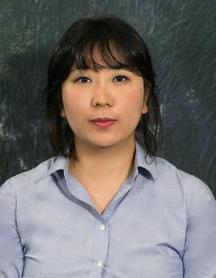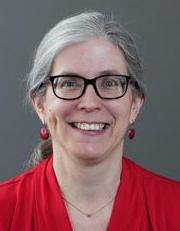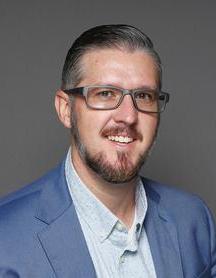Our Staff and Faculty

Benjamin Kelcey
Professor of Quantitative Research Methodologies, CECH Educational Studies
3311B Teachers College
My research focuses on causal inference, machine learning, structural equation modeling (SEM) and (latent) measurement methods within the context of multilevel and multidimensional settings such as classrooms and schools.
With respect to causal inference, I develop and apply frameworks, principles and practices that support causal inferences while paying particular attention to how concomitant social and organizational structures further afford or constrain their feasibility and effectiveness. I develop methods for (quasi-) experimental design and statistical adjustments that enable researchers to mount focused, specific analogies of their observational studies to randomized experiments with emphasis on multilevel or clustered settings.
Within this scope, I also develop and apply machine learning and artificial intelligence methods for causal inference (e.g., targeted learning, double machine learning, variational autoencoders) and explainable AI (XAI). Methods that can supplement accurate prediction and pattern detection with robust causal explanations hold foundational value in developing theories and programs because they provide a systematic way to understand, build, test, accumulate and replicate evidence. My work in machine learning is generally situated within multilevel organizational structures where high dimensional, interactive, and nonlinear data and latent variables (e.g., through factor-based variational autoencoders) are common (e.g., classroom teaching).
Similarly, my work on structural equation and latent variable modeling develops methods for complex measurement and nesting structures, high dimensional settings, (approximate) measurement invariance, and nonlinear effects. This work has included, for example, machine learning with latent variables (e.g., variational autoencoders), n-level SEM, latent interactions, structural-after-measurement (SAM) and small sample (nonlinear) estimators and is also generally situated within multidimensional and multilevel contexts (e.g., complex cross-classified assessments of teaching and learning).
Statistically, these research areas unfold within the context of and development of machine learning methods, (quasi-) experimental design and analysis methods, and latent variable analysis methods. The confluence of these statistical foci take substantive root in understanding the extent to which teacher and school factors can intervene to promote more effective and contextually responsive classroom and school environments. This work has included the measurement and analysis of teachers' knowledge, instructional quality and strategies, teacher mental health and preparation, and student achievement to identify and explain profiles, pathways and practices (e.g., who teachers are, what teachers know, what teachers believe, perceive and experience, what teachers do) that produce student learning and how these profiles and practices vary across contexts.
With respect to causal inference, I develop and apply frameworks, principles and practices that support causal inferences while paying particular attention to how concomitant social and organizational structures further afford or constrain their feasibility and effectiveness. I develop methods for (quasi-) experimental design and statistical adjustments that enable researchers to mount focused, specific analogies of their observational studies to randomized experiments with emphasis on multilevel or clustered settings.
Within this scope, I also develop and apply machine learning and artificial intelligence methods for causal inference (e.g., targeted learning, double machine learning, variational autoencoders) and explainable AI (XAI). Methods that can supplement accurate prediction and pattern detection with robust causal explanations hold foundational value in developing theories and programs because they provide a systematic way to understand, build, test, accumulate and replicate evidence. My work in machine learning is generally situated within multilevel organizational structures where high dimensional, interactive, and nonlinear data and latent variables (e.g., through factor-based variational autoencoders) are common (e.g., classroom teaching).
Similarly, my work on structural equation and latent variable modeling develops methods for complex measurement and nesting structures, high dimensional settings, (approximate) measurement invariance, and nonlinear effects. This work has included, for example, machine learning with latent variables (e.g., variational autoencoders), n-level SEM, latent interactions, structural-after-measurement (SAM) and small sample (nonlinear) estimators and is also generally situated within multidimensional and multilevel contexts (e.g., complex cross-classified assessments of teaching and learning).
Statistically, these research areas unfold within the context of and development of machine learning methods, (quasi-) experimental design and analysis methods, and latent variable analysis methods. The confluence of these statistical foci take substantive root in understanding the extent to which teacher and school factors can intervene to promote more effective and contextually responsive classroom and school environments. This work has included the measurement and analysis of teachers' knowledge, instructional quality and strategies, teacher mental health and preparation, and student achievement to identify and explain profiles, pathways and practices (e.g., who teachers are, what teachers know, what teachers believe, perceive and experience, what teachers do) that produce student learning and how these profiles and practices vary across contexts.

Youn Seon Lim
Asst Professor (F2), CECH Educational Studies
Teachers College
Dr. Youn Seon Lim is an Assistant Professor of Psychometrics, Measurement, and Educational Statistics in the Quantitative and Mixed Methods Research Methodology (QMRM) division of Educational Studies at the University of Cincinnati. Youn Seon teaches courses in introductory and advanced statistics, measurement, and psychometrics. Her research concerns multivariate latent variable modeling, including Nonparametric and Bayesian approaches, in educational and psychological measurement and survey research. Youn Seon has published on algorithms for estimating the Q-matrix of cognitively diagnostic assessments, on Bayesian estimation routines for large multidimensional diagnostic classification models, on model-fit statistics, and on fitting nonparametric hierarchical diagnostic classification models to nested response patterns.
Prior to joining the faculty at QMRM at the University of Cincinnati, Youn Seon was an Assistant Professor of Data Science and Biostatistics at the Donald and Barbara Zucker School of Medicine at Hofstra University/Northwell in Hempstead, NY. Youn Seon did postdocs in Prof. Fritz Drasgow’s Psychometric Laboratory at the University of Illinois, Urbana-Champaign, and at BIFIE in Salzburg, Austria. (BIFIE stands for "Bundesinstitut für Bildungsforschung, Innovation & Entwicklung des österreichischen Schulwesens" [Federal Agency for Educational Research, Innovation, and Development of the Austrian Schooling System]—BIFIE is kind of the Austrian equivalent to ETS.)
For Full Publications, please visit the Website.
Prior to joining the faculty at QMRM at the University of Cincinnati, Youn Seon was an Assistant Professor of Data Science and Biostatistics at the Donald and Barbara Zucker School of Medicine at Hofstra University/Northwell in Hempstead, NY. Youn Seon did postdocs in Prof. Fritz Drasgow’s Psychometric Laboratory at the University of Illinois, Urbana-Champaign, and at BIFIE in Salzburg, Austria. (BIFIE stands for "Bundesinstitut für Bildungsforschung, Innovation & Entwicklung des österreichischen Schulwesens" [Federal Agency for Educational Research, Innovation, and Development of the Austrian Schooling System]—BIFIE is kind of the Austrian equivalent to ETS.)
For Full Publications, please visit the Website.

Vicki L. Plano Clark
Professor, CECH Educational Studies
638P Teachers College
Vicki L. Plano Clark is a professor in the Research Methods area of the School of Education. She advises students in the Quantitative and Mixed Methods Research Methodologies (QMRM) concentration of the Educational Studies doctoral program and the Applied Research Methods (ARM) track of the Educational Studies master's program.
As a methodologist specializing in mixed methods research, Dr. Plano Clark studies how researchers effectively integrate quantitative and qualitative approaches to address their research questions. Her scholarship focuses on delineating useful designs for conducting mixed methods research, examining procedural issues associated with these designs, and examining larger questions about the contexts for the adoption and use of mixed methods. She has written numerous books and articles in the field of mixed mehtods research. She was the founding Managing Editor for the Journal of Mixed Methods Research and currently serves as an Associate Editor. In 2011, she co-led the development of Best Practices for Mixed Methods in the Health Sciences for NIH's Office of Behavioral and Social Sciences Research. In 2012 she became a founding co-editor of the new Mixed Methods Research Series with Sage Publications. She recently served as Chair of the Mixed Methods Research Special Interest Group of the American Association of Educational Research (AERA).
As an applied research methodologist, Dr. Plano Clark also engages in research and evaluation projects on a wide array of topics such as the management of cancer pain, the identity development of STEM graduate students, the professional development of teachers of Chinese, and the well-being of rural low-income families.
Before joining the University of Cincinnati in 2012, Dr. Plano Clark was the director of the Office of Qualitative and Mixed Methods Research, a service and research unit that provided methodological support for proposal development and funded projects at the University of Nebraska–Lincoln (UNL). She also taught research methods courses in UNL's Educational Psychology department. Prior to that work, she spent 12 years developing innovative curricular materials for introductory physics as UNL's Physics Laboratory Manager.
As a methodologist specializing in mixed methods research, Dr. Plano Clark studies how researchers effectively integrate quantitative and qualitative approaches to address their research questions. Her scholarship focuses on delineating useful designs for conducting mixed methods research, examining procedural issues associated with these designs, and examining larger questions about the contexts for the adoption and use of mixed methods. She has written numerous books and articles in the field of mixed mehtods research. She was the founding Managing Editor for the Journal of Mixed Methods Research and currently serves as an Associate Editor. In 2011, she co-led the development of Best Practices for Mixed Methods in the Health Sciences for NIH's Office of Behavioral and Social Sciences Research. In 2012 she became a founding co-editor of the new Mixed Methods Research Series with Sage Publications. She recently served as Chair of the Mixed Methods Research Special Interest Group of the American Association of Educational Research (AERA).
As an applied research methodologist, Dr. Plano Clark also engages in research and evaluation projects on a wide array of topics such as the management of cancer pain, the identity development of STEM graduate students, the professional development of teachers of Chinese, and the well-being of rural low-income families.
Before joining the University of Cincinnati in 2012, Dr. Plano Clark was the director of the Office of Qualitative and Mixed Methods Research, a service and research unit that provided methodological support for proposal development and funded projects at the University of Nebraska–Lincoln (UNL). She also taught research methods courses in UNL's Educational Psychology department. Prior to that work, she spent 12 years developing innovative curricular materials for introductory physics as UNL's Physics Laboratory Manager.

Christopher Swoboda
Associate Professor Research Methods, CECH Educational Studies
638Q Teachers College
As a highly collaborative applied quantitative research methodologist, I have focused my scholarship, teaching and leadership roles on implementing, evaluating and developing tools for data driven decision making and research across a variety of contexts (e.g., education, health, legal studies). I pride myself in both using rigorous methodological approaches to combat real problems and in making these tools accessible to all learners.